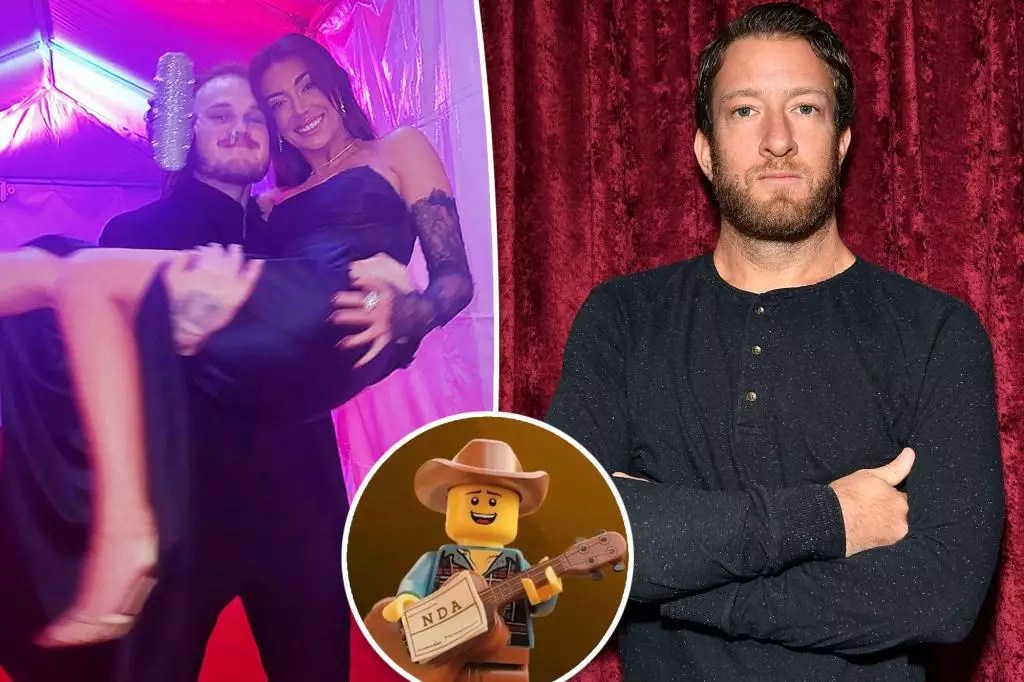The world of celebrity culture has seen a significant evolution in how public disputes and personal grudges unfold, now often taking the form of diss tracks. A prime example of this trend is the ongoing feud between Barstool Sports founder Dave Portnoy and country music star Zach Bryan. Recent events have illustrated not only how personal disputes can escalate into public spectacles but also how lyrics can serve as vehicles for commentary on deeper issues, like alleged abuse, legal entanglements, and industry power dynamics.
Diss tracks are not new to the music scene; they have a storied history in hip-hop and pop. However, their increasing popularity among broader celebrities has sparked public interest in the genre. Portnoy’s latest release, targeting Bryan, highlights how social media and internet culture have influenced traditional music formats to become tools of personal expression and social critique. As Portnoy employs satirical lyrics and humorous metaphors, he creates a unique commentary that entertains while addressing glaring issues in celebrity relationships.
In his latest diss, titled “Country Diddy,” Portnoy draws parallels between Bryan and Sean “Diddy” Combs — a musician currently embroiled in legal controversies involving serious allegations. The references made in the lyrics not only add an element of humor, but they also serve to critique Bryan’s character and actions. Phrases like “steal another story write another Country Ditty” illustrate how Portnoy feels about Bryan’s alleged antics and raise questions about authenticity and accountability in the music industry.
Portnoy’s lyrics tackle a range of issues, from Bryan’s legal troubles to allegations of manipulative behavior. He accuses Bryan of attempting to “silence” critics, including Portnoy himself, and supposedly offering large sums of money to former partners, a claim that raises eyebrows about how power dynamics play out in relationships, especially when fame and money come into play. LaPaglia, who had a history with Bryan, adds weight to these accusations, stating that she turned down a substantial financial offer, further suggesting a troubling pattern of coercive tactics among relationships in the spotlight.
This situation exemplifies how the lines between personal life and public persona can blur in our celebrity-obsessed society. The public and media often become involved, transforming private disputes into high-stakes drama. The stakes are amplified when one of the disputing parties is a public figure, like Bryan, whose image and career can be jeopardized by these revelations.
A Cultural Commentary
Beyond the sensationalist elements, these diss tracks offer a broader cultural commentary on the state of relationships in the public eye. LaPaglia’s comments about Bryan’s previous relationships underscore the emotional toll that such dynamics can exert. Her revelations suggest a systemic issue of behavioral patterns among male celebrities who may feel privileged or invulnerable due to their fame and success.
The fact that Portnoy has repeatedly vowed to produce more diss tracks could imply a broader trend. Traditional celebrity disputes might be making way for a more aggressive, music-driven representation of grievances. This trend not only garners media attention but also encourages audiences to engage with the issues being presented. Whether it’s about personal grievances or a critique of societal norms, diss tracks have carved out a unique niche that blends humor, music, and serious commentary.
As celebrities like Portnoy any continue to leverage music as a form of expression and critique, it raises questions about the future of celebrity culture and public feuds. Will this genre evolve further into a platform for accountability, or will it remain largely entertainment-focused?
Portnoy’s diss tracks are more than just amusement for the public; they form a tapestry of personal struggles, societal reflections, and critiques of the entertainment industry. The evolution of diss tracks as an art form continues to unfold, pushing the envelope on what it means to engage in public disputes today while shining a spotlight on deeper societal issues.







Leave a Reply